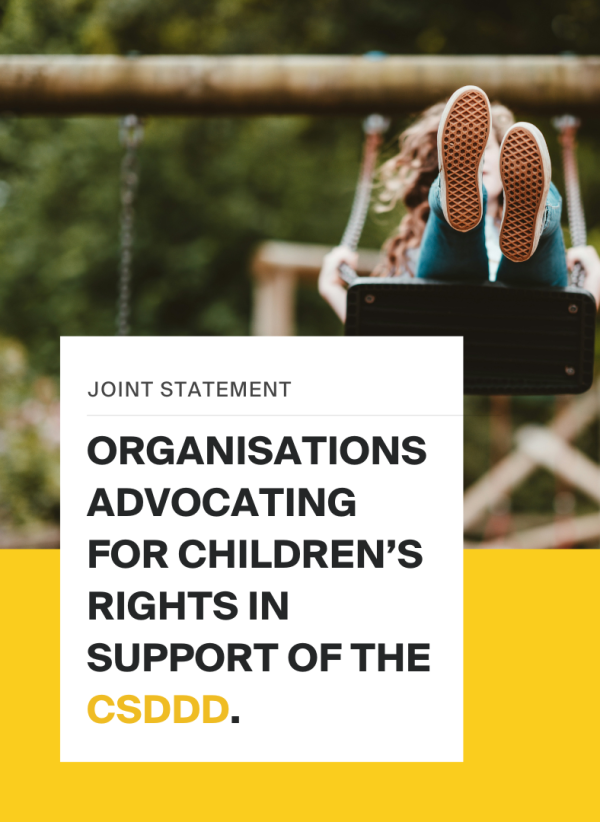This website uses cookies so that we can provide you with the best user experience possible. Cookie information is stored in your browser and performs functions such as recognising you when you return to our website and helping our team to understand which sections of the website you find most interesting and useful.

The last day of the UN negotiations was a sprint through the remaining articles. The main takeaway? Political will is the key ingredient in closing the judicial void and uneven patchwork of standards and rules. Although many member states, NGOs and trade unions engaged in the talks substantively and constructively, this was undermined by some delegations, which refused to submit concrete proposals.
After seven years of negotiations and three revisions, the draft text was fit for negotiations and the time was ripe for engagement. A sense of frustration could be felt, as some stakeholders, including the EU, spent the better part of this week complaining about a lack of consensus in the room, but did little to move things forward. The EU not only missed an opportunity to harmonize corporate accountability rules globally, it even stalled the process and undermined the efforts of others.
😲This week the EU is again not at the table for a #BindingTreaty on business & human rights.
They say they're busy making EU rules. But that won't be enough:👆Companies👆Exploit👆Gaps. We need GLOBAL binding rules. @vonderleyen, @dreynders, @EU_Justice, @eu_eeas, @JosepBorrellF pic.twitter.com/eVXfMx7JS1— Friends of the Earth Europe🌍 (@foeeurope) October 27, 2021
The UN Guiding Principles on Business & Human Rights have been both used and misused this week. A reminder: cloning them will not be sufficient to protect human rights and the environment from corporate abuse, and to deliver justice for people globally. The UNGPs’ non-binding nature explains its poor track record in terms of implementation. That is why this authoritative and widely accepted standard can only serve as a basis for a legally binding instrument.
Applicable law
In discussions about applicable law, member states barely intervened. Brazil expressed reservations about giving victims the possibility to request their preferred law of application within the parameters established by the treaty. The US criticized the broad application of foreign law in domestic forums for increasing ambiguity. Egypt added that applicable law should be subject to the general principle of conflict of laws and jurisdiction.
The International Transport Workers’ Federation submitted an insertion of the law where the victim is domiciled. NGOs argued that the choice of law should be the one that is most protective to the victim.
Mutual legal assistance
On the issue of mutual legal assistance and international cooperation, only a few delegations took the floor, but only to make general negative statements. For instance, Brazil argued that article 12 places a disproportionate burden on governments, while the US found the article to be too prescriptive.
Palestine asked for the deletion of ad hoc arrangements in which state parties could invite non-party states to provide mutual legal assistance, but Brazil rejected this outright.
Business representatives stressed that the list of proposed actions in article 12.5 are not appropriate as they circumvent due process rights. To highlight the importance of this article, NGOs used the Chevron-Texaco case in Ecuador as an example of how better cooperation with Canadian courts could have improved the deployment of justice.
An article-by-article sprint
Member states barely intervened on article 13. Then Brazil, Panama, Egypt, Pakistan and Iran opposed article 14.5, which describes the effect of the treaty on trade and investment agreements, arguing they do not wish to sign on to a text that establishes a hierarchy between different branches of international law.
Regarding institutional arrangements, Brazil challenged the need for a permanent structure to oversee the instrument. Palestine, Egypt and Namibia objected. The US argued that a new treaty body will require a UN budget, so it needs careful consideration.
Panama argued that the committee should not be limited to human rights and public international law experts, but include individuals knowledgeable in environmental law, labor law, trade etc.
Egypt backed the suggestion for a fund that “shall be replenished by the States Parties annually and supplemented by a 2% levy from the proceeds of any fine, court-approved settlement, or tribunal-imposed financial award”.
Civil society organisations called for strengthening the mandate and powers of the committee as a compliance monitoring mechanism. The implementation of the treaty should not rest too heavily on the capacity and willingness of member states.
Peru included a reference to contemporary forms of slavery in article 16.3, which received support from South Africa, Panama, Palestine.
No further proposals were given on articles 19 through 24.
The session ended with the promise of further consultations and the formation of a working group called ‘Friends of the chair’ to build support and agreement. However, nothing was said of the next draft treaty text.
Frustration abound
The cherry on the cake was the inclusion of consultations with business in the final report of the session. Businesses can meet with governments in Davos for the World Economic Forum, as well as at the UN Business and Human Rights Forum. Internal UN rules classify who can participate at the negotiation sessions, such as the International Organization of Employers and the International Chamber of Commerce. But at a summit where rules for business are under discussion, member states should ensure that all necessary safeguards are in place, so that actors with commercial interests do not hijack the process.
Statements by Palestine and Egypt during the adoption of the report defended the role of civil society and called on other member states to work constructively. These were a clear example of what political will looks like.
What the text and process need most going forward is political commitment from all member states, including the EU.
In the words of Members of the European Parliament, “if the EU can agree on a strong regional directive and get a mandate to finally enter the treaty process, it will meet its responsibility to ensure protection of human rights and the environment in the EU and worldwide” – this is what’s expected from the EU at next year’s negotiations.












